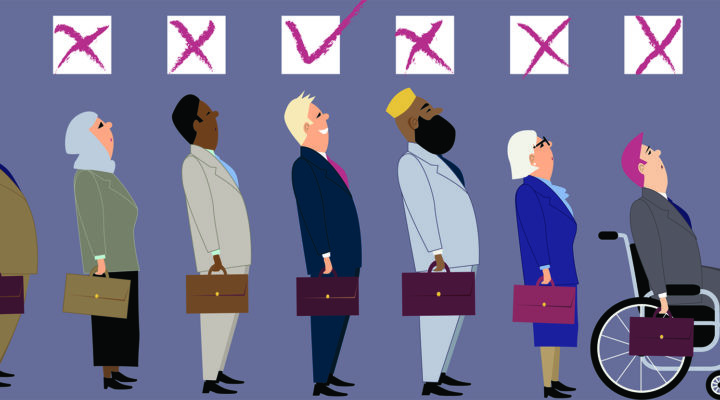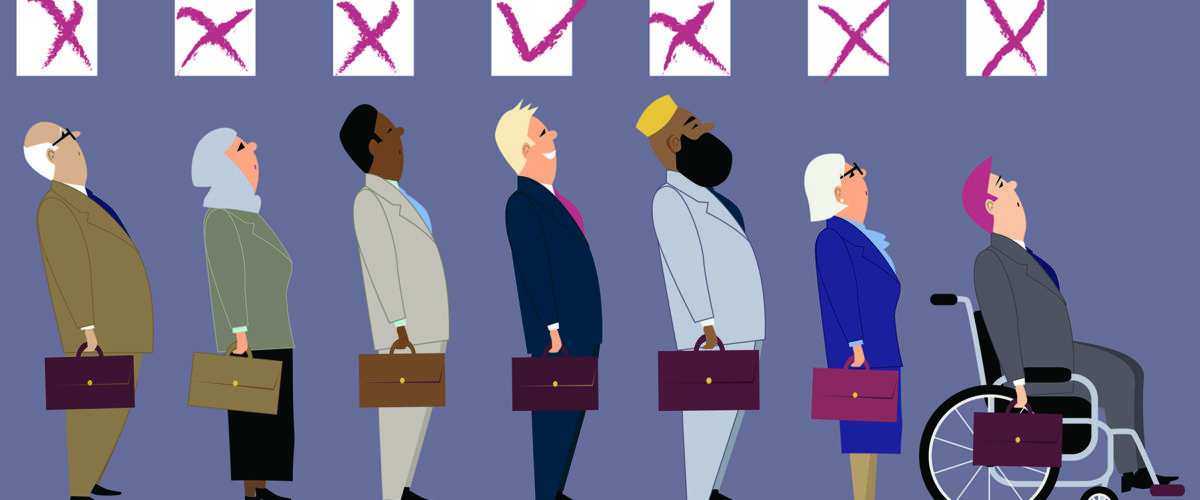This is the second in a series of opinion columns to be published over the next three weeks exploring Critical Race Theory.
The Southern Baptist Convention has managed to do it again!
As the nation struggles through a pandemic that has now taken the lives of upwards of 275,000 Americans — while simultaneously attempting to heal in the immediate aftermath of a divisive presidential election cycle — the Council of Seminary Presidents of the Southern Baptist Convention purportedly met for the purpose of reaffirming their commitment to the Baptist Faith and Message. This meeting took place on what SBC leaders are touting to be the document’s 20th anniversary, which itself is questionable since the first edition of the Baptist Faith and Message was adopted in 1925.

Corrie Shull
When I was baptized in 1996, I was given a Bible and a copy of the 1963 version of the Baptist Faith and Message edited by Herschel Hobbs. It seems suspicious that the Council of Seminary Presidents elected to only celebrate the anniversary of the latest edition when this document has existed for 95 years; at least, it’s odd until you consider the nationalist and sexist language that was added to the 2000 edition, distinguishing it from its predecessors.
This may provide insight into why the meeting of the Council of Seminary Presidents played out the way it did. As it turns out, the meeting was not simply to reaffirm their commitment to their guiding statement, but the occasion was used to capitulate to the whims of the Conservative Baptist Network within the SBC in condemning “Critical Race Theory, Intersectionality and any version of Critical Theory as incompatible with the Baptist Faith and Message.”
In the same year that George Floyd was choked to death by a police officer while being live-streamed on iPhones, and Breonna Taylor was murdered in her own apartment by police executing an outdated no-knock warrant, and Ahmaud Arbery was chased down and killed by white supremacists for jogging, the only thing the brilliant presidents of SBC seminaries could think to do with the opportunity provided by their annual meeting was to double-down on the SBC’s historic institutional commitment to racism and white supremacy.
“At this point, it is clear this is who the SBC is. The SBC remains committed to the very racism and hatred that instigated its founding.”
At this point, it is clear this is who the SBC is. The SBC remains committed to the very racism and hatred that instigated its founding. At every turn, the SBC resists opportunities to evolve on issues of race and gender in order to authentically follow the revolutionary Jesus Christ of Nazareth — who welcomed the stranger, made space for women and demonstrated what it is to honor the rich tapestry of ethnicities and identities with which God has created humanity.
It is precisely because the SBC continually refuses to reflect the ethics of the New Testament Jesus that the SBC is not worthy of bearing the name of Christ and should instead be defined as what it has always been: a white supremacist organization created to give theological justification for racism, sexism and xenophobia.
The SBC is nothing more. So, why are some Black Christians still holding on to the SBC?
Since at least the mid-20th century, Black Christians have looked past the SBC’s racist history in an effort to build the bridge of ecclesial brotherhood, in keeping with Jesus’s prayer that “they all may be one.” In return, the SBC has resisted progress at every turn. When challenged to admit Black Americans to study in SBC seminaries, the SBC demanded that Black Americans sit in the hallways. When calls rang out for these seminaries to diversify their faculties, the SBC begrudgingly employed a very small number of Black faculty; they did so while making the claim that they could not find qualified candidates, ignoring the scores of Black students who have graduated with Ph.Ds from their seminaries. Embarrassingly, it took the SBC almost 150 years after the Emancipation Proclamation to apologize for their participation in chattel slavery, which provided the monies to build and expand their seminaries. Most recently, the SBC allowed itself to be prostituted by the Trump administration to give theological cover for its xenophobia, sexism and racism.
Now, the SBC has focused its gaze on Critical Race Theory.
The SBC and its seminaries and auxiliaries are committed to consistently conveying the message that Black lives do not matter and never will to them. Therefore, it is poor stewardship for Black Americans to continue to enroll in SBC seminaries or for Black churches to continue affiliating with the SBC.
In fact, to do so is an affront to the continuing work of Black liberation in this nation. For far too long, Black Baptists have put their theological, sociological and existential well-being on the altar of reconciliation for those who have not repented for their historic sins or for their current aiding of systems that perpetuate oppression. When given the terms for salvation, they have turned their backs and walked away like the Rich Young Ruler rejecting the opportunity to be included in the kingdom of God.
Consequently, the response of Black Christians to the SBC should be what Jesus instructed his disciples to do in Luke 9: “Shake off the dust from your feet as a testimony against them.”
“There is nothing Christian about remaining committed to a group of pseudo-Christians who support every effort to preserve the systems that oppress the lives of Black Americans.”
Indeed, there is nothing Christian about remaining committed to a group of pseudo-Christians who support every effort to preserve the systems that oppress the lives of Black Americans. Only an authentic encounter with the radical and revolutionary Jesus of Nazareth can bring salvation to the SBC, not Black folk posturing as missionaries to people who prefer to manipulate Christianity in order to uphold their privilege and whiteness.
Long before the SBC allowed Black Americans to enroll in their seminaries or to become members of their convention, there were Black Baptist conventions that were both theologically orthodox and attentive to Black flourishing. Those historic Black conventions still exist and are worthy of support and participation. There are even predominantly white Baptist conventions and fellowships, such as the Cooperative Baptist Fellowship, that make valiant attempts to understand issues of justice; they leverage their privilege to advocate for Black Americans and other marginalized groups in the public square.
The bottom line is this: The SBC does not own exclusive rights to Christian witness or even to what it means to be Baptist. It is high time we stop acting as though they do. Let the SBC have their patriarchal white-supremacist institutions without the benefit of Black presence, which only creates the illusion of unity, brotherhood and reconciliation.
Corrie Shull is a pastor, author, professor, elected official and father. He holds degrees from Fisk University, Louisville Presbyterian Theological Seminary and Colgate Rochester Crozier Divinity School. He serves Burnett Avenue Baptist Church in Louisville, Ky.
Other articles in this series:
SBC seminary presidents are propagating fear to maintain control


